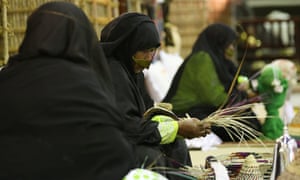UAE imprisoning rape victims under extramarital sex laws – investigation

Hundreds of women, some of them pregnant or domestic servants who are victims of rape, are being imprisoned in the United Arab Emirates every year under laws that outlaw consensual sex outside marriage, according to a BBC Arabic investigation.
Secret footage obtained by BBC Arabic show pregnant women shackled in chains walking into a courtrooms where laws prohibiting “Zina” – or sex outside marriage – could mean sentences of months to years in prison and flogging.
“Because the UAE authorities have not clarified what they mean by indecency, the judges can use their culture and customs and Sharia ultimately to broaden out that definition and convict people for illicit sexual relations or even acts of public affection,” said Rothna Begum, women’s rights researcher at Human Rights Watch in London.
While both men and women could in theory be imprisoned for having sex outside marriage, the investigation – which will air at the opening of BBC Arabic festival on 31 October – found that in reality pregnancy is often used as proof of the “crime”, with domestic female migrant workers – numbering about 150,000 in the UAE – left most vulnerable.
There are no available official figures on the number of women incarcerated each year, but estimates from prisoners, family lawyers, charities and the work of investigative reporters put the figure in the hundreds.
There have been high-profile cases involving foreigners falling foul of the law. In 2010 a British woman who made a rape complaint against a waiter in Dubai was arrested for having illegal sex with her fiancé.
A few years later Norwegian woman Marte Dalelv reported being raped by her colleague, was imprisoned for extra marital sex and was only released after international outcry.
But cases involving women living inside the country rarely garner the same coverage. BBC Arabic spoke to Emirati woman Hessa*, who found out that she was pregnant by a man she had been with for six years and who had promised to make her his second wife.
“When I told him I was carrying his child he got very upset. Then he hit me,” she said. “He said ‘I will tell your family you’re dishonourable’.” Faced with ruin, she decided to have an illegal abortion. “I can’t have a baby without being married,” she said. “A woman can’t have a child with someone she loves. If my family found out they’d slaughter me.”
Hessa had consensual sex, but other women find themselves facing incarceration after being raped. Laily*, who left her home in Bangladesh for a job as a domestic helper, was allegedly raped by her boss, whom other workers had warned “was a really bad man”.
“I said I would electrocute myself and die if he didn’t leave,” she told BBC Arabic. “I screamed and begged at his feet. I called him ‘Father’. I said: ‘A father cannot do this to his daughter!’ I pushed him, he fell. I bit him. Then he held my feet and both my hands and abused my honour.”
According to Amnesty International Gulf researcher Drewery Dyke, the situation is far from uncommon. “Rape victims have been accused of having engaged in illicit sexual relations, while the rape allegations themselves have been left uninvestigated,” he said. “While press reports suggest that this situation has slightly improved, anecdotal accounts indicate that vulnerable women from migrant communities continue to be detained for illicit sexual relations, often being left to languish in jail with their newborn babies.”
Under the UAE’s kafala system, foreign workers – who make up 90% of the population – must be sponsored by an employer. They can only work for that employer and cannot leave the country without permission. Although it is against the law, passports are routinely confiscated. Laily had no choice but to live under the same roof as her rapist. When he discovered she was pregnant and they both risked being prosecuted, the family dropped her at the airport in only the clothes she was wearing. “I could not take anything with me. I left everything.”
The UAE’s laws on sex and pregnancy outside marriage, based on Sharia law, were codified when the nation was founded in 1971. “The constitution states that Islam is the official religion of the nation and that Sharia is the source of laws in the country. There is no way anyone can oppose it,” said Sabah Mahmoud, who worked as a lawyer in the UAE for 15 years.
Women imprisoned for extramarital sex told the investigation that conditions in prison were poor. Marie*, a domestic worker from the Philippines who had two children with a local man, was put on trial without a lawyer and sentenced to nine months in prison with her daughters.
“They are giving weekly one can of milk and 25 pieces of pampers. But it’s not enough. Even water you need to buy,” she said. “We are three to four persons inside that room and we have babies. We sleep on one small mattress.”
Human rights organisations argue the extramarital sex ban in the UAE – which also exists in Saudi Arabia, Bahrain, Kuwait, Qatar, Oman, and Yemen, Iran, Afghanistan, South Sudan and Morocco – contravene international human rights laws which the UAE has signed up to.
“They need to decriminalise consensual sexual relations. This would then lift off the possibility that victims could be prosecuted,” said Begum. “Then you need to be able to ensure that those who end up as victims are in a situation where they are not vulnerable.”
Response:
Alexandra Topping wrote this article to raise awareness of the mistreatment of women as a result of Sharia law. This article highlights a human rights violation that stems from Sharia law in select Muslim countries. She is very against this principle of Sharia law in order to protect victims of sexual crimes. A law is useless if it is not there to protect and in the best interest of the people. Topping specifically focuses on the numbers of women in the UAE that have been raped and sent to prison for sex outside of marriage without the representation of a lawyer or trial. She writes that the authorities in the UAE have not "clarified what they mean but indecency", which means many women are becoming victims of unjust laws.
Citation:
Topping, Alexandra. "UAE Imprisoning Rape Victims under Extramarital Sex Laws – Investigation." The Guardian. The Guardian, 26 Oct. 2015. Web. 26 Oct. 2015.

